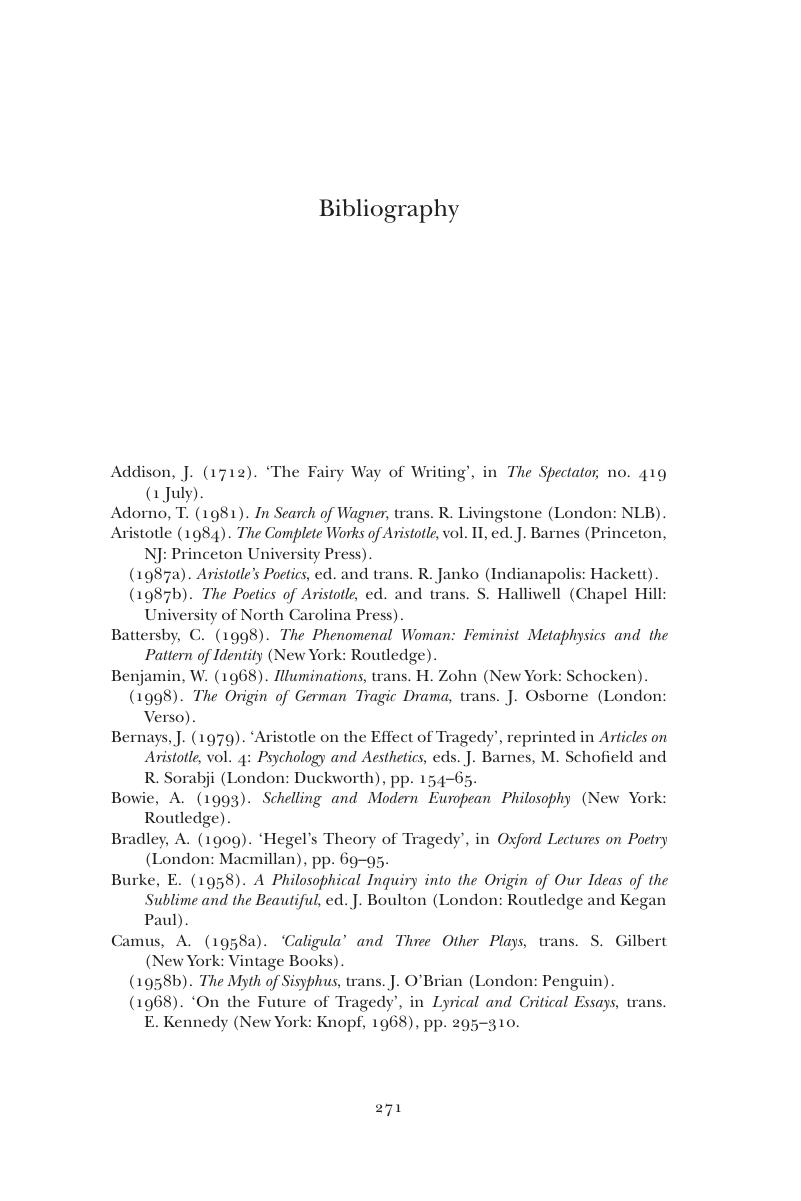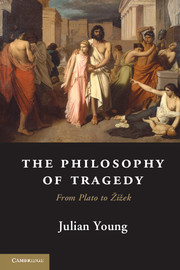Book contents
- Frontmatter
- Contents
- Acknowledgements
- Abbreviations of Frequently Cited Works
- Introduction
- 1 Plato
- 2 Aristotle
- 3 After Aristotle
- 4 Hume
- 5 Schelling
- 6 Hölderlin
- 7 Hegel
- 8 Kierkegaard
- 9 Schopenhauer
- 10 Nietzsche
- 11 Benjamin and Schmitt
- 12 Heidegger
- 13 Camus
- 14 Arthur Miller
- 15 Žižek
- 16 Conclusions
- Bibliography
- Index
- References
Bibliography
Published online by Cambridge University Press: 05 June 2013
- Frontmatter
- Contents
- Acknowledgements
- Abbreviations of Frequently Cited Works
- Introduction
- 1 Plato
- 2 Aristotle
- 3 After Aristotle
- 4 Hume
- 5 Schelling
- 6 Hölderlin
- 7 Hegel
- 8 Kierkegaard
- 9 Schopenhauer
- 10 Nietzsche
- 11 Benjamin and Schmitt
- 12 Heidegger
- 13 Camus
- 14 Arthur Miller
- 15 Žižek
- 16 Conclusions
- Bibliography
- Index
- References
Summary

- Type
- Chapter
- Information
- The Philosophy of TragedyFrom Plato to Žižek, pp. 271 - 276Publisher: Cambridge University PressPrint publication year: 2013



